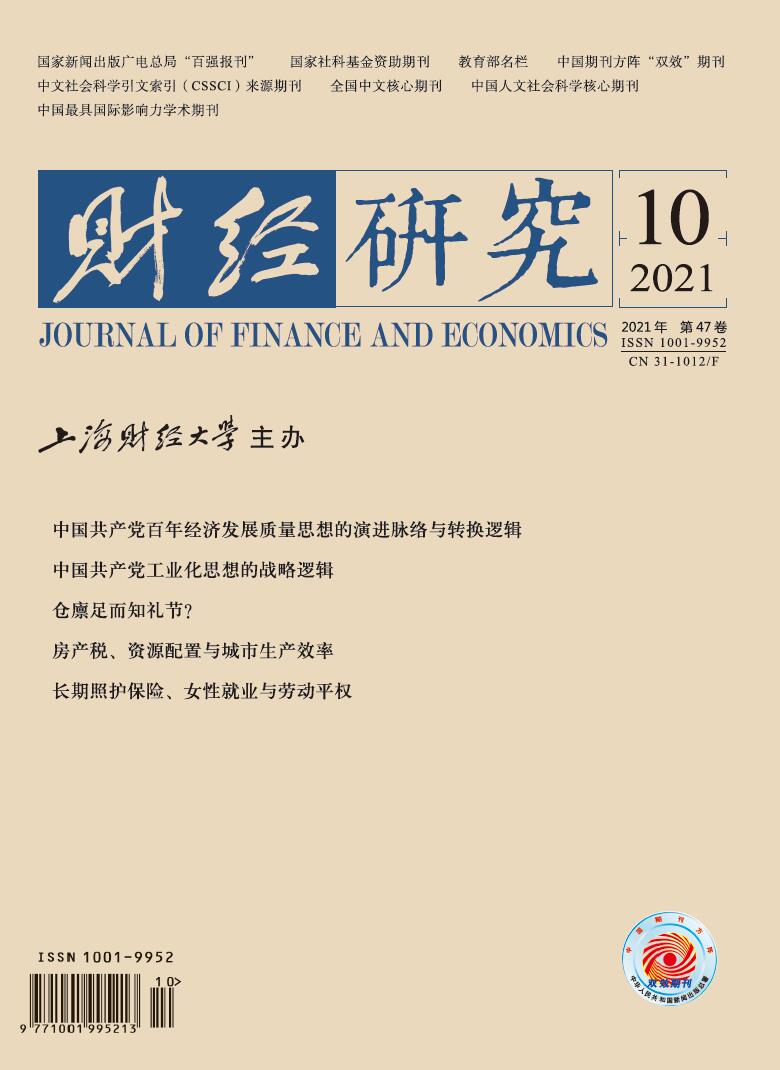企业通常会通过权衡应计盈余管理和真实盈余管理的边际收益和成本来确定盈余管理的方式和水平。金税三期系统以智能化为特征,有效实现了税收信息整合,能够充分发挥强化税收监管的作用,提高企业真实盈余管理的税收成本,但不影响应计盈余管理成本,从而改变企业盈余管理的选择。文章以各地区实施金税三期作为外生事件构造双重差分检验,研究了智能化税收监管对企业盈余管理选择的影响。研究结果表明,金税三期强化了对纳税不遵从企业的监管,增加了企业实施真实盈余管理的税收成本,使得纳税不遵从企业倾向于增加应计盈余管理,而且随着税率的上升,应计盈余管理和真实盈余管理的替代关系增强。文章的研究为理解企业盈余管理行为和制定税收监管政策提供了启示。
智能化监管与企业盈余管理选择——基于金税三期的自然实验
摘要
参考文献
2 范经华,张雅曼,刘启亮. 内部控制、审计师行业专长、应计与真实盈余管理[J]. 会计研究,2013,(4):81−88. DOI:10.3969/j.issn.1003-2886.2013.04.012
4 黄蓉,易阳,宋顺林. 税率差异、关联交易与企业价值[J]. 会计研究,2013,(8):47−53. DOI:10.3969/j.issn.1003-2886.2013.08.007
7 李艳,杨婉昕,陈斌开. 税收征管、税负水平与税负公平[J]. 中国工业经济,2020,(11):24−41. DOI:10.3969/j.issn.1006-480X.2020.11.002
12 刘骏,刘峰. 财政集权、政府控制与企业税负−来自中国的证据[J]. 会计研究,2014,(1):21−27. DOI:10.3969/j.issn.1003-2886.2014.01.004
13 柳建华,孙亮,卢锐. 券商声誉、制度环境与IPO公司盈余管理[J]. 管理科学学报,2017,(7):24−42. DOI:10.3969/j.issn.1007-9807.2017.07.002
16 王福胜,吉姗姗,程富. 盈余管理对上市公司未来经营业绩的影响研究−基于应计盈余管理与真实盈余管理比较视角[J]. 南开管理评论,2014,(2):95−106. DOI:10.3969/j.issn.1008-3448.2014.02.011
18 王跃堂,王亮亮,彭洋. 产权性质、债务税盾与资本结构[J]. 经济研究,2010,(9):122−136. DOI:10.3969/j.issn.1005-913X.2010.09.050
19 吴联生. 国有股权、税收优惠与公司税负[J]. 经济研究,2009,(10):109−120. DOI:10.3969/j.issn.1005-913X.2009.10.049
26 袁知柱,宝乌云塔娜,王书光. 股权价值高估、投资者保护与企业应计及真实盈余管理行为选择[J]. 南开管理评论,2014,(5):136−150. DOI:10.3969/j.issn.1008-3448.2014.05.015
32 Badertscher B A. Overvaluation and the choice of alternative earnings management mechanisms[J]. The Accounting Review,2011,86(5): 1491−1518. DOI:10.2308/accr-10092
33 Beck T,Levine R,Levkov A. Big bad banks?The winners and losers from bank deregulation in the United States[J]. The Journal of Finance,2010,65(5): 1637−1667. DOI:10.1111/j.1540-6261.2010.01589.x
34 Cohen D A,Dey A,Lys T Z. Real and accrual-based earnings management in the pre- and post-Sarbanes-Oxley periods[J]. The Accounting Review,2008,83(3): 757−787. DOI:10.2308/accr.2008.83.3.757
35 Cohen D A,Zarowin P. Accrual-based and real earnings management activities around seasoned equity offerings[J]. Journal of Accounting and Economics,2010,50(1): 2−19. DOI:10.1016/j.jacceco.2010.01.002
36 Dechow P M,Dichev I D. The quality of accruals and earnings:The role of accrual estimation errors[J]. The Accounting Review,2002,77(S1): 35−59. DOI:10.2308/accr.2002.77.s-1.35
37 Desai M A,Dyck A,Zingales L. Theft and taxes[J]. Journal of Financial Economics,2007,84(3): 591−623. DOI:10.1016/j.jfineco.2006.05.005
38 Fan H C, Liu Y, Qian N, et al. The dynamic effects of computerized VAT invoices on Chinese manufacturing firms[R]. NBER Working Paper, 2018.
39 Graham J R,Harvey C R,Rajgopal S. The economic implications of corporate financial reporting[J]. Journal of Accounting and Economics,2005,40(1−3): 3−73. DOI:10.1016/j.jacceco.2005.01.002
40 Gramlich J D,Limpaphayom P,Rhee S G. Taxes,keiretsu affiliation,and income shifting[J]. Journal of Accounting and Economics,2004,37(2): 203−228. DOI:10.1016/j.jacceco.2003.10.001
41 Hanlon M,Heitzman S. A review of tax research[J]. Journal of Accounting and Economics,2010,50(2−3): 127−178. DOI:10.1016/j.jacceco.2010.09.002
42 Jones J J. Earnings management during import relief investigations[J]. Journal of Accounting Research,1991,29(2): 193−228. DOI:10.2307/2491047
43 Klassen K,Lang M,Wolfson M. Geographic income shifting by multinational corporations in response to tax rate changes[J]. Journal of Accounting Research,1993,31: 141−173.
44 Maydew E L,Schipper K,Vincent L. The impact of taxes on the choice of divestiture method[J]. Journal of Accounting and Economics,1999,28(2): 117−150. DOI:10.1016/S0165-4101(99)00022-1
45 Mcnichols M F. The quality of accruals and earnings:The role of accrual estimation errors:Discussion[J]. The Accounting Review,2002,77(S1): 61−69. DOI:10.2308/accr.2002.77.s-1.61
46 Phillips J,Pincus M,Rego S O. Earnings management:New evidence based on deferred tax expense[J]. The Accounting Review,2003,78(2): 491−521. DOI:10.2308/accr.2003.78.2.491
47 Roychowdhury S. Earnings management through real activities manipulation[J]. Journal of Accounting and Economics,2006,42(3): 335−370. DOI:10.1016/j.jacceco.2006.01.002
48 Sandmo A. The theory of tax evasion:A retrospective view[J]. National Tax Journal,2005,58(4): 643−663. DOI:10.17310/ntj.2005.4.02
49 Shackelford D A,Shevlin T. Empirical tax research in accounting[J]. Journal of Accounting and Economics,2001,31(1−3): 321−387. DOI:10.1016/S0165-4101(01)00022-2
50 Slemrod J. Cheating ourselves:The economics of tax evasion[J]. Journal of Economic Perspectives,2007,21(1): 25−48. DOI:10.1257/jep.21.1.25
51 Zang A Y. Evidence on the trade-off between real activities manipulation and accrual-based earnings management[J]. The Accounting Review,2012,87(2): 675−703. DOI:10.2308/accr-10196
引用本文
朱凯, 潘舒芯, 胡梦梦. 智能化监管与企业盈余管理选择——基于金税三期的自然实验[J]. 财经研究, 2021, 47(10): 140-155.
导出参考文献,格式为:






 4954
4954  5448
5448

